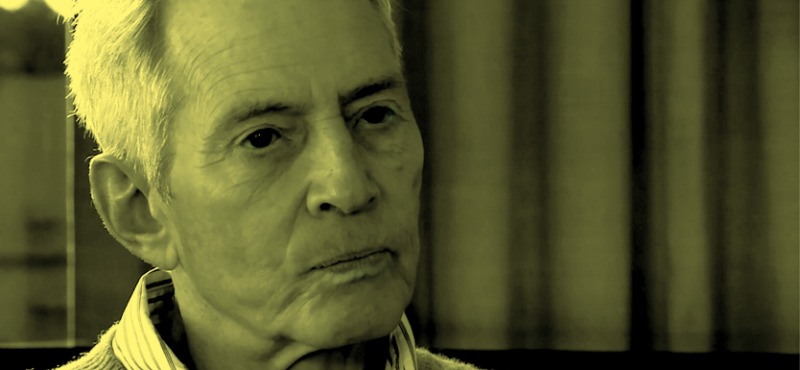By: John D. Balaguer and Christine Kane
For years Delaware law has permitted some tort plaintiffs to ask juries to compensate them for what can amount to hundreds of thousands of dollars in medical expenses that they never paid. Medical expenses that were never paid by anyone. These "phantom” costs arise from substantial deductions routinely made from medical bills by Medicare and Medicaid. A recent ruling from the Delaware Superior Court seeks to put an end to this illogical interpretation of the collateral source rule.
The so called collateral source rule, followed in most states, permits a tort plaintiff to recover medical expenses even when they were paid by private insurance or public sources like Medicare. The plaintiff “blackboards” the bills and the jury is not permitted to know a collateral source has already paid them. The rationale behind this longstanding rule is that the defendant shouldn’t benefit from the fact that a third party “collateral source” has paid the bills.
For decades, Delaware has by statute followed a modified collateral source rule for medical negligence cases, which permits juries to be made aware of collateral payments, if the plaintiff’s medical bills were paid by a public collateral source. (18 Del C. §6862) Thus, while a medical malpractice plaintiff in Delaware can blackboard her full medical bills, the law provides that, in assessing damages, the jury shall consider any public collateral source benefits the plaintiff has received. While this rule is helpful for defendants it can still leave the jury with an inflated picture of the medical expenses actually incurred.
When medical care is covered by Medicare or Medicaid, the government sharply limits what it will pay private healthcare providers for their services. These limits, agreed to between healthcare providers and the government, are usually reflected in the government’s deep reductions in the bills submitted. The balance of the bill, after the government’s reductions are made, must be written off because the medical providers are forbidden by law from billing their patients for the difference.
However, if the same bills are proof of damages in a tort case, Delaware law, until recently, permitted the plaintiff to seek compensation for the full amount of the bills, despite the fact that only a fraction of the bill was paid and the rest was literally extinguished by law. The unfairness-- not to mention illogic-- of this legal fiction was put in sharp relief in the recent case of Stayton v. DE Health Corp., et al.
In Stayton, a wheelchair bound nursing home resident suffered severe burns when she set herself on fire with a cigarette lighter, allegedly due to negligent supervision by the facility staff. At trial, the plaintiff sought to recover past medical bills totaling about $3.6 million. However, of that amount, Medicare paid only about $262,000, and by law the plaintiff had no obligation to pay the balance which was simply written off by the providers.
Under existing law, including Delaware’s modified collateral source rule for medical negligence cases, the Stayton plaintiff would have been permitted to “blackboard” the entire $3.6 million, and the jury would have been told that Medicare paid only $262,550. Thus, the jury would have been led to believe that the plaintiff was still responsible for roughly $3.4 million in medical bills which in reality didn’t exist. In a pointed departure from prior decisions, the court in Stayton concluded that it could not permit this fiction, that the jury should be told the truth, and that the plaintiff should be limited to seeking only the amount of medical bills actually paid by the public collateral source.
In reaching its decision, the Stayton Courtfocused on the fundamental difference between private and public collateral sources. The court concluded that Medicare is distinctly different from private insurance. It is funded by taxpayers. Participation in the program is not voluntary. In other words, one does not freely contract for Medicare benefits the way one does for private insurance. And there is no right of subrogation or refund of benefits on a tort recovery for the amount written off by the government.
The court reasoned that any damages above the amount actually paid by Medicare are truly illusory because the plaintiff is not responsible for the balance, and only has to reimburse Medicare for the amount Medicare paid out. The court also observed that the purpose of tort damages is to put a plaintiff back in the position that she was in before the tort occurred, not to facilitate a double recovery. Even though a double recovery is often permitted by the traditional collateral source rule, because it is seen as a lesser evil than allowing a tortfeasor to benefit from the fact that his victim obtained and paid for private insurance, this rationale has no application to the illusory unpaid “balance” of bills satisfied by public benefits. This is so because the plaintiff did not contract for the coverage or play any role in the her healthcare providers’ agreement to accept reduced payments from the government for their services.
Of note, the court in Stayton did not rely on Delaware’s modified public collateral source statute for medical negligence claims as a basis for its decision, and so the ruling should apply equally to non-medical negligence tort cases involving medical bills paid by public benefits.
The Stayton decision is a significant departure from past court decisions in Delaware governing collateral source issues and is currently on appeal to the Delaware Supreme Court, so it remains to be seen whether it will be followed widely. However, for now, the case provides a strong rationale for significantly limiting medical expenses as a basis for damage awards when a public collateral source is involved in making medical payments.
If you have any questions about this decision or about other healthcare law issues in Delaware please do not hesitate to contact us.
John Balaguer is the Managing Partner of the firm's Delaware office and a member of the Firm’s Healthcare Practice Group. He can be reached at 302.467.4501 or balaguerj@whiteandwilliams.com. Christine Kane is an associate in the Healthcare Practice Group. She can be reached at 302.467.4504 or kanec@whiteandwilliams.com.


















